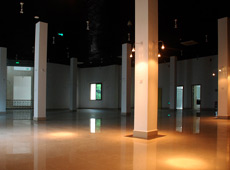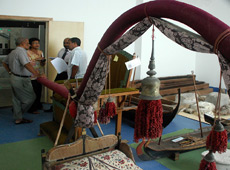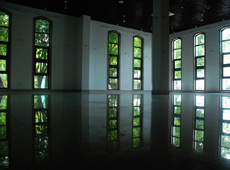Leader of the minority opposition Dhivehi Qaumee Party (DQP) Dr Hassan Saeed has returned to the Maldives, after visiting the UK to meet MPs and journalists, and call on the international community to pressure the government to respect the country’s constitution.
DQP Secretary General Abdulla Ameen said the visit was “very successful”, and that Saeed had met with former Labour Party Deputy Prime Minister John Prescott “and other prominent opposition MPs.”
“Dr Saeed presented in such a way as to ask the government [of the Maldives] to follow the rule of law and to respect and uphold the constitution,” Ameen said.
Dr Saeed also met with journalists from outlets including Al Jazeera and the Independent, and was printed in the Guardian newspaper, Ameen said.
“Although it was DQP members who travelled to the UK, they represented the opposition coalition,” Ameen added.
The trip was “collectively funded by the opposition parties”, he noted.
DQP enlists UK PR firm
Minivan News has meanwhile obtained an email sent by a Peter Craske representing a UK-based public relations firm ‘The Campaign Company’, in which Craske solicits a meeting between the recipient and the DQP, “which is formed of an alliance between the DRP and MDP parties”.
From: Peter Craske [[email protected]]
Sent: [removed]
To: [removed]
Subject: Possible meeting with MPs from the Maldives
Dear [removed],
I am contacting you on behalf of The Campaign Company, a communciations agency, which represents the DQP political party from the Maldives, which is formed of an alliance between the DRP and MDP parties.
Two of their representatives, Hassan Saeed, a former Attorney General and Presidential candidate and Mohammed Jameel Ahmed, a former Minister of Justice, are visiting the UK next week, and would like, if possible to meet up with you given your longstanding interest in the country, for no other reason than to brief you on the current political issues in the country, where there has been some unrest and some Parliamentarians have been arrested.
The meeting would solely be for them to discus the issues in confidence, while they are in the UK.
I realise it is short notice, but would be grateful if you would be able to let me know whether or not this was possible, depending on your diary.
I look forward to hearing from you.
Peter Craske
The Campaign Company
The DQP is a minor opposition party in coalition with Abdulla Yameen’s People’s Alliance (PA), Gasim Ibrahim’s Jumhoree Party (JP), and the major opposition Dhivehi Rayyithunge Party (DRP), but not the ruling MDP.
The DQP confirmed that Dr Saeed’s delegation included two other senior members of the party, Mohamed Jameel Ahmed and Abdul Matheen, neither of whom are MPs as Craske appears to suggest.
Minivan News was unable to find any mention of Craske on the Campaign Company’s list of employees, however a receptionist at the Campaign Company confirmed the PR firm was “definitely working with political parties in the Maldives”, and referred Minivan News to the company’s director for enquiries regarding Craske.
Instead, Minivan News contacted Craske directly through the included phone number, who confirmed he was employed by the Campaign Company on a freelance basis to set up meetings last week with his contacts in the UK parliament.
“I don’t work for the Campaign Company, I was just employed to set up meetings,” he said. ‘I was just using the information [the Campaign Company] gave me.”
Ameen said he did not know whether the delegation had contracted a PR firm for the trip, but said that Saeed was “still well-connected in the UK.”
“Dr Hassan and Dr Jameel are in contact with a number of MPs. They know MPs from before 2008 and they have still have contacts in the UK.”
He added that he could “not say anything about an email you might have received, only specifically what Dr Hassan Saeed said.”
Meanwhile, Craske’s contact at the Campaign Company, Debbie Coulter, confirmed the company had set up meetings on Dr Saeed’s behalf and denied he had ever been introduced as an MP – “I haven’t seen the email,” she said, suggesting it might have been a mistake – “the brief [given to Craske] was quite clear.”
Regarding Craske’s introduction of the DQP as “an alliance between the DRP and MDP parties”, Coulter said the agency had recognised and introduced the DQP “as an independent party.”
She confirmed she was aware that Dr Saeed was currently the legal representation of opposition MPs Yameen and Gasim in court against allegations from the government of corruption and treason, following the release of incriminating phone taps leaked to the media.
“The bulk of the people he met were in the legal profession and people who knew of him and his background,” Coulter explained, adding that she “personally attended” every meeting.
“During his stay in London, Dr Saeed met with representatives from The Law Society, the Commonwealth Secretariat, Amnesty International, Labour MP Gareth Thomas (Labour), Liberal Democrat MP Simon Hughes, Lord Prescott, Lord Foulkes and Sir Ivan Lawrence,” Coulter said.
Sir Ivan Lawrence notably led a team of international lawyers to the Maldvies in 2005 to determine whether President Nasheed, leader of the then-opposition, was likey to receive a fair trial after being charged with terrorism and sedition by the former government.
He concluded that the Maldivian judicial system lacked “the basic capacity, competency and necessary independence” to deliver a fair trial, as reported by the Asian Centre for Human Rights.
DQP’s UK media statement
A media statement issued in the UK and forwarded to Minivan News by Coulter quoted Dr Saeed:
“President Nasheed came to power carrying the hopes of many people that we could achieve full democracy. However today we see him threatening our democratically elected Parliament, our judiciary and our press freedom in a way that he would have no doubt similarly criticised his predecessor for.
We cannot allow the rule of law to be replaced by mob rule. The streets of our capital have seen violence and opposition politicians are detained and their homes attacked. Our judiciary is now described as corrupt when it upholds the rights of people to be treated properly under the law.
That is why I am in the UK this week to make a wider appeal to the international community that they should tell President Nasheed to behave inside the Maldives in the same way that he does when making the case for international support over climate change.”
Accompanying biographical information distributed to UK journalists notes that “the Gayoom government spent much time intimidating the ex-Ministers, seeking to ban the New Maldives movement and then registering another organisation under the same name under the control of the ruling party.
“Dr Hassan Saeed has been consistent in his advocacy of reform over the years. This has led him into conflict with the previous government, which he resigned from. He supported the present government in order to achieve reform, but now sees it behaving in a similar way to its predecessor and is thus speaking out in defense of reform and democracy.”
Meeting journalists
A second email obtained by Minivan News was from a journalist seeking further information on claims made by the delegation in the UK, and describing materials distributed on behalf of the DQP which reportedly alleged:
President Nasheed, a former political prisoner who was dubbed the ‘Nelson Mandela of the Maldives’, has become autocratic since being democratically elected and is introducing a number of repressive measures, including:
* plans to close the courts and set up ‘public courts’
* suspending the Constitution, which the UK and certain Commonwealth states helped draft
* Judges have suffered threats and intimidation at the hands of the government and police. Civil Court Judge Mohamed Hilmy and his fiancee were handcuffed, stripped, beaten – and then photographed in a state of undress by the police.
Ameen confirmed that the first claim referred to the vigilante court “[recently inaugrated] by MDP MP ‘Reeko’ Moosa Manik”.
Of the second claim concerning the Constitution, Ameen said “I do not think [Dr Saeed] mentioned suspension of the constitution, I would say he broadly highlighted the need to uphold democracy.”
Concerning the suspension of Civil Court judge Mohamed Hilmy, “I think that was a case a few months back, I cannot specifically tell the detail. It was a very well publicised case.”
Minivan News reported in November last year that the Judicial Services Commission (JSC) had suspended Judge Mohamed Hilmy pending an investigation by police into alleged sexual misconduct, after he was discovered on a beach in Hulhumale’ in a state of undress with a woman.
A police statement claimed “the two had to be taken into custody on suspicion of sexual behaviour in a public place, as they were at the garbage dump in the south of Hulhumale’ with their pants down.”
At the time Hilmy denied the allegations to newspaper Haveeru, claiming he was walking with his fiancé when they were set upon by police, handcuffed, beaten, forcibly undressed and photographed. Police sent the case to the Prosecutor General and the matter was forwarded to the JSC, a police spokesman confirmed.
The last hearing concerning Judge Hilmy was held in January, although he remains suspended and continues to draw a salary due to the JSC’s inaction on the matter, according to commission member Aisthath Velezinee.
According to a report in newspaper Miadhu, Maldivian High Commissioner in the UK, Dr Farahanaz Faisal, claimed the Commission had yet to receive any enquiries from UK officials following meetings with Dr Saeed, and questioned whether they had occurred at all.
Addendum:
Subsequent to the publication of this article, Peter Craske sent Minivan News an email in which he accepted responsibility for “factual inaccuracies” in his communication with UK MPs concerning the DQP.
“Just to clarify the situation, as a member of the Conservative Party, I was recently asked by the Campaign Company (TCC) if I could arrange a small number of meetings with Conservative MP’s during a visit to the UK by Dr Hassan Saeed,” Craske wrote.
“Unfortunately, despite receiving a clear written brief from TCC, there were three factual inaccuracies in the email I sent to these MPs:
- The reference to a “Possible meeting with MPs from the Maldives” in the subject line, though this was not repeated in the text of the email;
- The reference to an alliance between the MDP and DQP, which clearly does not reflect the current political situation, nor the information with which I was provided;
- The suggestion in my email signature that I was an employee of the Campaign Company.
“This was one email to a small number of Conservative MPs which in fact did not result in any meetings,” he added.
“Having had this drawn to my attention, I would like to express my deep regret for any misunderstanding this email will have caused. I have apologised to the Campaign Company and to Dr Hassan Saeed for this.”
Likes (0)Dislikes
(0)Dislikes (0)
(0) 

